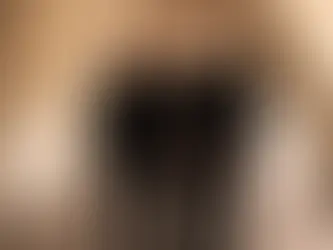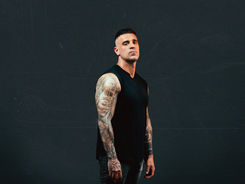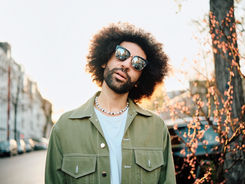Base Rose: "The poetry, for me, is in the everyday"
- Redaction
- Jun 24
- 3 min read

Base Rose is a poet and performer based in Brussels whose work explores themes of love, vulnerability, and resilience through spoken word designed for the stage rather than the page. For her, writing is not just a hobby but a vital necessity—a way to survive difficult times and transform silence into voice. When she began searching for an electronic musician to elevate her poetry to a new dimension, she wasn’t looking for just a beatmaker but someone who truly understood emotion, rhythm, and space. Upon meeting Mattisix, a guitarist and electronic live performer, they instantly connected and created the project Base Rose. It’s not a traditional band or duo, but a live, ongoing dialogue between words and sound, uniquely crafted every time.
"Je Veux" blends poetry and sound in a powerful, intimate way. How did this track come to life, and what sparked your collaboration with Mattisix?
"Je Veux" came to life very naturally during a live rehearsal with Matteo. We were experimenting with ideas and sounds, and the fusion of our creative energies created an intimate and powerful atmosphere. The connection between poetry and sound developed through our exchanges, and we aimed to capture deep emotions through the music. It was this chemistry, along with our shared desire to create something sincere, that truly sparked this collaboration. Together, we were able to bring to life a track that speaks universally while remaining deeply personal.
Your work lives through performance rather than the page. How does knowing your words will be heard—rather than read—shape the way you write?
When I write, I hear the words in my head—rhythms, sequences, almost like a melody. I often write while listening to music; it helps me find the tone, the tempo, the emotion. Music influences the way I write. It pushes me to repeat certain words, to play with silence, to create a natural rhythm. Sometimes a word comes back like a chorus. Sometimes I cut a sentence just to let the air breathe. I don’t like saying too much. I try to express a lot of feeling with very few words. Every line has to carry weight. I write so it sounds real, so it hits home—not just to be read—but to be heard.
You’ve said writing is a necessity for you, a way to survive hard times. What part of yourself did you pour into "Je Veux"?
"Je veux" (I want)I’m not asking for heroes. I’m not asking for role models. I’m asking for real men.I know you get pushed around, judged too quickly. We, as women, can be hard, demanding. But behind those expectations, there’s something simple: We want to see you stand—whole, present. I say to you: Take your place. Not the one given to you, but the one you choose. Dare to be yourselves, with no mask, no role to play. But do it in your finest attire—not a costume made to impress, but one stitched from your truth, from your strength, your flaws, your light. That’s where I’ll be waiting. Not for perfection—but for something real. And beautiful, because it’s you. "I have deep confidence in men's ability to be much braver with their emotions".
Your project with Mattisix isn’t a traditional duo, but a dialogue between word and sound. How do you build that dialogue live, and how much space do you leave for improvisation?
It’s true—with Mattisix, it’s not just two artists sharing a stage. It’s a constant exchange, a living dialogue between words and sound. We don’t perform with one behind the other—we perform together, reacting to each other, sometimes in harmony, sometimes in tension. When we’re live, nothing is set in stone. There’s a structure, of course—anchors we both rely on—but we always leave room for improvisation. It might be a word I deliver differently, a loop he decides to extend, or a silence we let breathe longer. There’s a very deep level of listening between us. What matters most is the moment, the energy in the room, the presence of the audience. We never perform a piece the exact same way twice. And that’s what we love—that element of surprise, that feeling that something real is being created right here, right now.
Brussels is where you're based. How does the city and its emotional and cultural landscape influence your poetic voice and performances?
First of all, Brussels is our city. We know it deeply—its streets, its moods, its contradictions. But to be honest, it’s not so much the city itself that influences me, it’s the people who live here. Our friends, our shared moments, our life stories—that’s where my inspiration comes from. The poetry, for me, is in the everyday—in the laughter, the chaos, the late-night talks, the little things that carry a lot of truth. Brussels is the background—but the voices, the emotions, the connections—that’s what shapes my poetic voice.

Follow Base Rose





![Enai, Enzo Gauthier - Maka [Eleatics Records]](https://static.wixstatic.com/media/395229_d813d627d9ef4805b712e260f6af1da4~mv2.webp/v1/fill/w_572,h_250,al_c,q_30,blur_30,enc_avif,quality_auto/395229_d813d627d9ef4805b712e260f6af1da4~mv2.webp)
![Enai, Enzo Gauthier - Maka [Eleatics Records]](https://static.wixstatic.com/media/395229_d813d627d9ef4805b712e260f6af1da4~mv2.webp/v1/fill/w_286,h_125,al_c,q_90,enc_avif,quality_auto/395229_d813d627d9ef4805b712e260f6af1da4~mv2.webp)
![Ertan Koculu - Insomnia [HYPECUE]](https://static.wixstatic.com/media/395229_acc020e8cf984c11a254799e2ed06fea~mv2.webp/v1/fill/w_572,h_250,al_c,q_30,blur_30,enc_avif,quality_auto/395229_acc020e8cf984c11a254799e2ed06fea~mv2.webp)
![Ertan Koculu - Insomnia [HYPECUE]](https://static.wixstatic.com/media/395229_acc020e8cf984c11a254799e2ed06fea~mv2.webp/v1/fill/w_286,h_125,al_c,q_90,enc_avif,quality_auto/395229_acc020e8cf984c11a254799e2ed06fea~mv2.webp)
![Alessio Cristiano, Baraka - Big Time EP [Marginalia]](https://static.wixstatic.com/media/395229_6fadb11b8e2445dc8c2775b71f8f950a~mv2.webp/v1/fill/w_572,h_250,al_c,q_30,blur_30,enc_avif,quality_auto/395229_6fadb11b8e2445dc8c2775b71f8f950a~mv2.webp)
![Alessio Cristiano, Baraka - Big Time EP [Marginalia]](https://static.wixstatic.com/media/395229_6fadb11b8e2445dc8c2775b71f8f950a~mv2.webp/v1/fill/w_286,h_125,al_c,q_90,enc_avif,quality_auto/395229_6fadb11b8e2445dc8c2775b71f8f950a~mv2.webp)
![Henri Bergmann, TOBAK - Drip [Automatik]](https://static.wixstatic.com/media/395229_3480fd2e7ff84cbf82415ff0c43d6e6d~mv2.webp/v1/fill/w_572,h_250,al_c,q_30,blur_30,enc_avif,quality_auto/395229_3480fd2e7ff84cbf82415ff0c43d6e6d~mv2.webp)
![Henri Bergmann, TOBAK - Drip [Automatik]](https://static.wixstatic.com/media/395229_3480fd2e7ff84cbf82415ff0c43d6e6d~mv2.webp/v1/fill/w_286,h_125,al_c,q_90,enc_avif,quality_auto/395229_3480fd2e7ff84cbf82415ff0c43d6e6d~mv2.webp)
![Guychu - Colors of the Morning [Anims]](https://static.wixstatic.com/media/395229_b5c81536833c41058494cee3bd9cd04b~mv2.webp/v1/fill/w_572,h_250,al_c,q_30,blur_30,enc_avif,quality_auto/395229_b5c81536833c41058494cee3bd9cd04b~mv2.webp)
![Guychu - Colors of the Morning [Anims]](https://static.wixstatic.com/media/395229_b5c81536833c41058494cee3bd9cd04b~mv2.webp/v1/fill/w_286,h_125,al_c,q_90,enc_avif,quality_auto/395229_b5c81536833c41058494cee3bd9cd04b~mv2.webp)
![Enai, Enzo Gauthier - Maka [Eleatics Records]](https://static.wixstatic.com/media/395229_d813d627d9ef4805b712e260f6af1da4~mv2.webp/v1/fill/w_333,h_250,al_c,q_30,blur_30,enc_avif,quality_auto/395229_d813d627d9ef4805b712e260f6af1da4~mv2.webp)
![Enai, Enzo Gauthier - Maka [Eleatics Records]](https://static.wixstatic.com/media/395229_d813d627d9ef4805b712e260f6af1da4~mv2.webp/v1/fill/w_245,h_184,al_c,q_90,enc_avif,quality_auto/395229_d813d627d9ef4805b712e260f6af1da4~mv2.webp)
![Ertan Koculu - Insomnia [HYPECUE]](https://static.wixstatic.com/media/395229_acc020e8cf984c11a254799e2ed06fea~mv2.webp/v1/fill/w_333,h_250,al_c,q_30,blur_30,enc_avif,quality_auto/395229_acc020e8cf984c11a254799e2ed06fea~mv2.webp)
![Ertan Koculu - Insomnia [HYPECUE]](https://static.wixstatic.com/media/395229_acc020e8cf984c11a254799e2ed06fea~mv2.webp/v1/fill/w_245,h_184,al_c,q_90,enc_avif,quality_auto/395229_acc020e8cf984c11a254799e2ed06fea~mv2.webp)
![Alessio Cristiano, Baraka - Big Time EP [Marginalia]](https://static.wixstatic.com/media/395229_6fadb11b8e2445dc8c2775b71f8f950a~mv2.webp/v1/fill/w_333,h_250,al_c,q_30,blur_30,enc_avif,quality_auto/395229_6fadb11b8e2445dc8c2775b71f8f950a~mv2.webp)
![Alessio Cristiano, Baraka - Big Time EP [Marginalia]](https://static.wixstatic.com/media/395229_6fadb11b8e2445dc8c2775b71f8f950a~mv2.webp/v1/fill/w_245,h_184,al_c,q_90,enc_avif,quality_auto/395229_6fadb11b8e2445dc8c2775b71f8f950a~mv2.webp)
![Henri Bergmann, TOBAK - Drip [Automatik]](https://static.wixstatic.com/media/395229_3480fd2e7ff84cbf82415ff0c43d6e6d~mv2.webp/v1/fill/w_333,h_250,al_c,q_30,blur_30,enc_avif,quality_auto/395229_3480fd2e7ff84cbf82415ff0c43d6e6d~mv2.webp)
![Henri Bergmann, TOBAK - Drip [Automatik]](https://static.wixstatic.com/media/395229_3480fd2e7ff84cbf82415ff0c43d6e6d~mv2.webp/v1/fill/w_245,h_184,al_c,q_90,enc_avif,quality_auto/395229_3480fd2e7ff84cbf82415ff0c43d6e6d~mv2.webp)
![Guychu - Colors of the Morning [Anims]](https://static.wixstatic.com/media/395229_b5c81536833c41058494cee3bd9cd04b~mv2.webp/v1/fill/w_333,h_250,al_c,q_30,blur_30,enc_avif,quality_auto/395229_b5c81536833c41058494cee3bd9cd04b~mv2.webp)
![Guychu - Colors of the Morning [Anims]](https://static.wixstatic.com/media/395229_b5c81536833c41058494cee3bd9cd04b~mv2.webp/v1/fill/w_245,h_184,al_c,q_90,enc_avif,quality_auto/395229_b5c81536833c41058494cee3bd9cd04b~mv2.webp)





